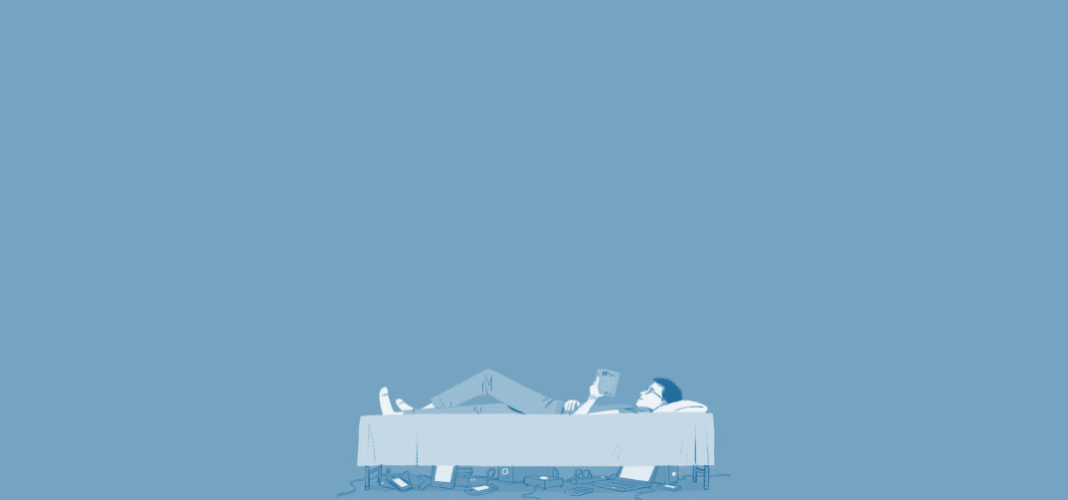Why is it that so many of the people who have provided us with technology are also the ones wisest about limiting its use? Many top Silicon Valley executives choose to send their children to decidedly low-tech schools that emphasize play-based learning and hands-on experiences. Instead of using iPads to teach fractions, they chop up food.
In a wonderful TED talk by the travel writer Pico Iver on the “Art of Stillness,” he describes how Kevin Kelly, the founder of Wired magazine, observes an Internet Sabbath every week. By going offline, Kelly, like many other tech gurus, gathers the strength and perspective he needs for his online life.
There is value in sitting still and contrary to what many believe, it can actually enhance productivity. The benefits of pressing pause were recently documented in a Harvard Business School study, Learning by Thinking: How Reflection Improve Performance. Quoting John Dewey, the authors conclude:
We do not learn from experience … we learn from reflecting on experience.
Google takes employee down time very seriously. They have a scientific approach to creativity, productivity, happiness, and yes, free time. In addition to providing playful spaces, yoga, organic meals and free dry-cleaning, Google allows employees to use 20 percent of their time to pursue their own interests.
Google is also studying how employees balance work demands with their personal lives. According to their data, only 31 percent are successful at drawing a line between work stress and their private lives. They call them “Segmentors.” Segmentors don’t fret at night about work. They sleep like babies. In comparison, the majority of employees—the “Integators”—have trouble delineating where work ends. For Integrators, work looms and email beckons all evening long.
Google has a plan to help Integrators become better Segmentors. They recognize that simply wishing to be a better Segmentor isn’t enough so they are taking action to facilitate downtime for employees:
We hope that Google can design environments that make it easier for employees to disconnect. Our Dublin office, for example, ran a program called “Dublin Goes Dark” which asked people to drop off their devices at the front desk before going home for the night. Googlers reported blissful, stressless evenings. Similarly, nudging Segmentors to ignore off-hour emails and use all their vacation days might improve well-being over time.
It’s a win-win. By disconnecting, they enhance their ability to connect. As Google knows all too well and Iver reminds us:
In an age of acceleration, nothing can be more exhilarating than going slow. In an age of distraction, nothing is so luxurious as paying attention. And in an age of constant movement, nothing is so urgent as sitting still.
I wish you all the best,
Dr. Samantha Boardman






